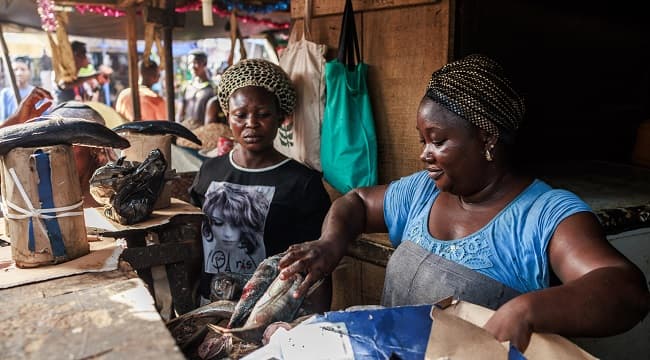
The Bureau revealed the statistic on Friday, with the most recent data showing an increase from 29.90 percent in January 2024.
According to the ‘Consumer Price Index and Inflation Report’ for February, the increase was 1.80% higher than in January.
"The headline inflation rate in February 2024 jumped to 31.70%, compared to 29.90% in January 2024.
“Looking at the movement, the February 2024 headline inflation rate increased by 1.80% points compared to the January 2024 headline inflation rate,” the study stated.
According to the report, Nigeria’s headline inflation rate increased by 9.79% year on year, compared to 21.91% in February 2023.
“This demonstrates that the headline inflation rate (year-on-year) increased in February 2024 when compared to the same month the previous year (i.e., February 2023),” the NBS stated.
Meanwhile, food inflation in February stood at 37.92 percent year over year. According to the data, this was 13.57 percent higher than the figure in February 2023 (24.35 percent).
“Food inflation rose year on year due to price rises in bread and cereals, potatoes, yam and other tubers, fish, oil and fat, meat, fruit, coffee, tea, and cocoa,” according to the research.
The data released on Friday came as authorities work to reduce the country’s growing living costs. The withdrawal of petroleum fuel subsidies and the floating of the naira were important causes for the spike.
Rising living costs have sparked protests in numerous parts of the country, but the administration assures Nigerians that it will address the issues.
Despite growing inflation rates, the Governor of the Central Bank of Nigeria (CBN), Yemi Cardoso, has previously voiced optimism for a reduction.
"Inflationary pressures are likely to fall in 2024 due to the CBN’s inflationary targeting strategy, which aims to keep inflation around 21.4%, assisted by better agricultural production and eased global supply chain pressures.
“The Nigerian foreign exchange market is currently seeing significant demand pressures, resulting in a steady fall in the value of the naira,” he told House of Representatives members in February.